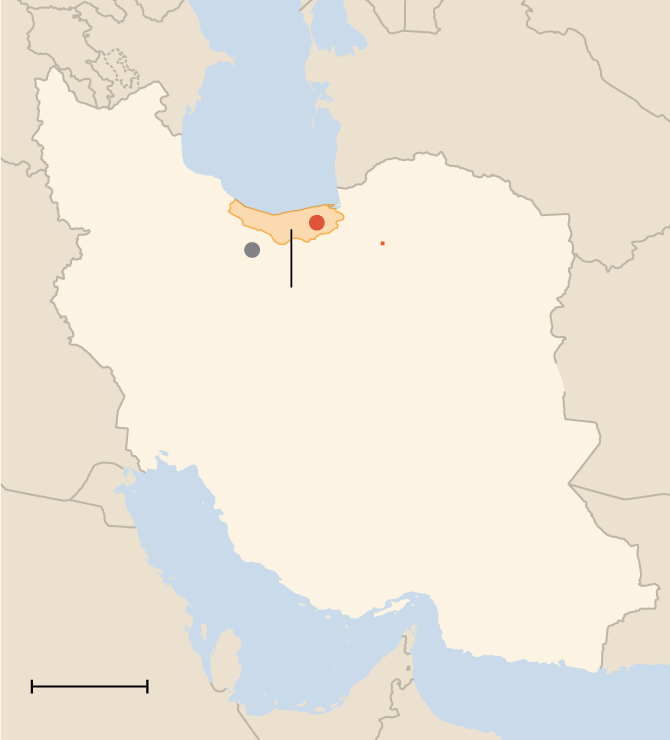In contemporary discourse surrounding human rights, the question arises: Is there any Iranian who is safe? This provocative inquiry reflects the grim realities faced by a marginalized community within Iran—the Baha’is. As adherents of a faith that emerged in the 19th century, Baha’is espouse principles of unity, equality, and justice, yet they find themselves increasingly vulnerable in a geopolitical landscape fraught with tension and intolerance. The Baha’i Faith, which champions the pursuit of truth and the fundamental rights of all individuals, faces severe repression in Iran, a situation that compels an examination of the underlying causes and ramifications of this plight.
To navigate the complexities inherent in this issue, it is essential to explore several dimensions: the origin of Baha’i persecution, the sociopolitical landscape of Iran, the ramifications of discrimination on both individual and communal levels, and the resilience demonstrated by the Baha’i community in the face of adversity. Each of these components contributes to a more nuanced understanding of the challenges confronting Baha’is in Iran.
Initially, one must delve into the historical context that has precipitated the current level of animosity. Following the inception of the Baha’i Faith in the mid-19th century, its rapid expansion prompted concern among the ruling authorities. The inherent tenets of the Baha’i Faith—including the emphasis on the oneness of humanity—contradict entrenched sociopolitical norms. The Iranian government, identifying the Baha’is as a heretical sect, has systematically targeted them through a relentless campaign of persecution. This hostility has intensified, particularly since the 1979 Islamic Revolution, which solidified theocratic rule and concomitantly marginalized non-Muslim minority groups.
In examining the sociopolitical landscape of Iran, it becomes evident that the intersection of religious intolerance and political ideology plays a decisive role in the persecution of Baha’is. Iran’s Islamic Republic embraces a singular interpretation of Islamic doctrine, which marginalizes any divergent beliefs as threats to national unity and religious orthodoxy. The Baha’is, viewed as apostates, lack any legal recognition; they are rendered invisible within the broader spectrum of Iranian society. This lack of recognition engenders systemic discrimination, extending from denial of basic civil rights to educational and employment opportunities.
The ramifications of such systemic discrimination manifest in profound and distressing ways. Individuals within the Baha’i community often encounter arbitrary arrests, home demolitions, and economic disenfranchisement. The psychological toll is palpable; families are torn apart, communities are fractured, and individuals live under constant threat of persecution. For many Baha’is, daily existence is fraught with anxiety—an existence marked by the fear of pre-dawn raids, imprisonment, and the eradication of their homes and places of worship. This vicious cycle of violence and repression not only impacts the Baha’is but also reverberates throughout Iranian society, undermining the very principles of justice and equality that are foundational to any ethical governance.
Nevertheless, amidst such adversities, the Baha’i community illustrates remarkable resilience and fortitude. Baha’is have adopted various strategies to safeguard their identity and maintain their communal integrity. For instance, they engage in covert educational initiatives, ensuring that their youth can access knowledge and cultivate their understanding of Baha’i principles, despite state-imposed restrictions. By establishing informal networks of support, Baha’is foster a sense of solidarity and resilience that transcends individual hardships.
Moreover, international advocacy plays a critical role in challenging the injustices faced by Baha’is in Iran. Human rights organizations and diplomatic entities have increasingly spotlighted the plight of Baha’is, calling for accountability and justice. By amplifying their narratives, these advocates serve not only to raise awareness but also to exert pressure on the Iranian government to re-evaluate its stance on religious minorities. The global response to these injustices offers a glimmer of hope for the Baha’i community, suggesting that solidarity and advocacy can inspire change.
Furthermore, dialogue surrounding the Baha’i experience highlights the imperative for broader societal transformation in Iran. Acknowledging the inherent dignity of all human beings, irrespective of faith or belief, is vital for fostering a climate of tolerance and acceptance. The Baha’i principle of oneness of humanity serves not only as a foundational tenet of their belief system but also as a powerful framework for challenging prevailing divisive ideologies. By inviting discourse centered on unity and understanding, Baha’is challenge the prevailing narrative of exclusion that plagues contemporary Iranian society.
In conclusion, the question of safety for Iranians—specifically Baha’is—unveils a complex tapestry of historical, sociopolitical, and humanitarian concerns. The systematic persecution faced by the Baha’i community exemplifies the broader challenges of religious intolerance and human rights violations within Iran. However, the resilience of the Baha’is, coupled with international advocacy and a commitment to dialogue, offers a roadmap for fostering understanding and ultimately achieving justice. As the plight of the Baha’is continues to unfold, it compels all observers to reflect on the implications of intolerance and the enduring quest for safety and freedom for every individual, irrespective of their beliefs.
